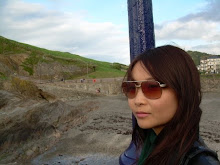In light of a recent major social media fail that even a chocolaty coating can't mask the taste of, are brands more susceptible to unfair and dirty slandering by the masses empowered by social media?
The PR Wire highlighted Nestle's defamation due to a Greenpeace allegation that led to a viral Youtube video circulation which spawned high numbers of venomous reactions on FB and Twitter.
But does that kind of reaction just mean that it's citizen journalism at its most modern?
Just as blogs are giving organisations and individuals a supposed "face" and "voice" (according to Trevor Cook's Can Blogging Unspin PR? in Uses of Blogs) - is it that time to question whether those faces and voices are really that individualistic and original?
Interestingly enough, just a week before Nestle's global reputation began to melt into the ground, an article in PR Week popped up revealing that brands are vulnerable to web attacks provoked by a "lynch-mob mentality".
Sure, the glorious internet provides society with a sense of freedom and anonymity, but does that truly mean that we can say whatever the hell we want, regardless of whether it's proven true of not?
According to a research study by Euro RSCG Biss Lancaster, 23% of UK adults would lash about and out at companies because of the facelessness of today's social media.
So it looks like there are quite a lot of people who aren't afraid to say anything, as long as it's not face-to-real face.
It's actually quite similar to the whole spiel your mother used to tell you when you committed an unsavory act because of peer pressure, "If all your friends jumped off a bridge, would you?"
As Euro RSCG Biss Lancaster chairman Graham Lancaster said: "What you find is that once people get the idea that everybody is doing it and having a go, then it snowballs...anonymity is making those of us that are timid join in and feel they are part of a counter-capitalist community online."
It's not just a UK-specific concern, Lee Siegel, respected writer, cultural critic and author of Against the Machine: Being Human in the Age of the Electronic Mob sums it up quite nicely as it being the v.2.0 of an old term, "the mass man - the man who is formed by the crowd" . The online crowd could very well count as a representation of the entire public, even outside the confines of the internet.
In this video, Lee talks about how the majority of people are losing the ability to think for themselves and how damaging this is.
He emphasizes that "it's not the judgement that is the problem but really how people arrive at that judgement."
Now this is by no means a direct opinion on the truth of Greenpeace's allegations against Nestle for unethical business practice, but rather it brings to mind the issue of the validity of "truth" on the internet.

Does social media really give us the freedom to be ourselves or are we all just one big mouth with nothing original to say?
Second image courtesy of Jennifer Daniel


1 comments:
With the introduction of new media, public gained much power. Citizens regardless of their financial means and social networks, were provided with a communication channel that allows them at any time and with no cost to publicise their opinion.
Although this option promotes the core meaning of democracy, it should “walk hand by hand” with the development of the responsibility of posting credible information and of an efficient law system that will not only provide to the citizens the right of freely expressing themselves but also to the companies, the right to be protected by rumors.
Post a Comment